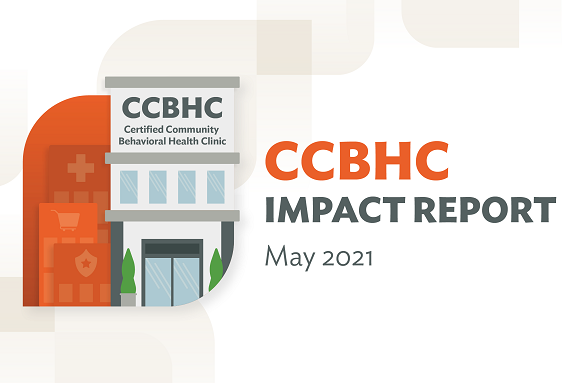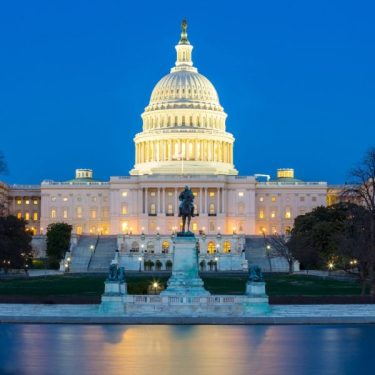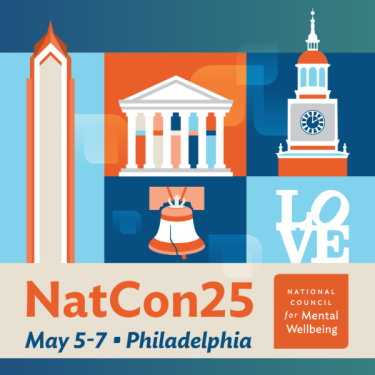FOR IMMEDIATE RELEASE
Contact:
Sophia Majlessi
SophiaM@TheNationalCouncil.org
(202) 621-1631
New data finds that adopting the CCBHC model enables clinics to serve more people, expand access to the best treatments for the opioid crisis and bolster coordination with criminal justice agencies
WASHINGTON, D.C. (May 25, 2021) – Certified Community Behavioral Health Clinics (CCBHCs) are closing the mental health and substance use treatment gap and expanding services – including same-day access and 24/7/365 crisis care – for an estimated 1.5 million people across the country.
Read the new CCBHC Impact Report
A new report by the National Council for Mental Wellbeing illustrates that CCBHCs are one of the most effective strategies to eliminate barriers to access and provide more comprehensive care and coordination services in hundreds of communities across the country.
Chuck Ingoglia, National Council for Mental Wellbeing president and CEO, released the following statement:
“Certified Community Behavioral Health Clinics are transforming our ability to address the nation’s mental health, substance use and overdose crises. Adopting the CCBHC model allows clinics to serve more people, improve collaboration with criminal justice agencies to help coordinate and divert crisis response and enhance care coordination with hospitals, reducing the burden on emergency departments.
“We need bold solutions to address the historic demand for mental health and substance use treatment services – demand that grew exponentially because of COVID-19 and will remain high long after the pandemic is over. This data shows that through their proven ability to provide comprehensive and ongoing care for anyone who walks in the door – no matter their financial situation – CCBHCs are the answer. We encourage Congress to introduce and pass legislation that allows every state to implement the CCBHC model within Medicaid. Our nation’s mental wellbeing is at stake – we can’t afford to wait when we know what works.”
Key highlights from the National Council’s survey of active CCBHCs:
- Adopting the CCBHC model gives clinics the ability to serve more people and reduce wait times.
- After adopting the model, clinics on average serve 17% more people than before becoming a CCBHC. In total, CCBHCs serve an estimated 1.49 million people nationwide.
- 50% of CCBHCs provide same-day access, 84% see patients within one week and 93% see patients within 10 days. The national average wait time for behavioral health services is 48 days.
- CCBHCs improve collaboration with criminal justice agencies and bolster crisis care coordination with hospitals.
- 95% of CCBHCs are engaged in one or more innovative practices in collaboration with law enforcement and criminal justice agencies (mental health courts, training police and corrections officers and co-responding to mental health/SUD calls, etc.).
- 79% coordinate with hospitals and emergency departments to prevent avoidable admissions when individuals are in crisis
- CCBHCs provide expanded access to substance use disorder treatment, helping communities make inroads against the opioid crisis.
- 70% of CCBHCs offer two or more forms of medication-assisted treatment (MAT), the most effective treatment for opioid use disorder. Only 29% of substance use clinics nationwide offer two or more forms of MAT. Offering multiple forms of MAT is crucial, as some treatments work better than others for different people.
- 60% of clinics were able to add MAT services for the first time after becoming a CCBHC, a sign of expanded access to this critical service in communities throughout the nation.
CCBHCs: A Brief Review
The CCBHC model was established in 2014 to give states and clinics the resources and flexibility to better address the rising demand for mental health care and substance use treatment. CCBHCs must meet defined federal and state criteria aimed at expanding access to services, including 24-hour crisis care and comprehensive outpatient mental health and substance use care.
Currently, CCBHCs are funded through both a Medicaid demonstration program and grants provided by the Substance Abuse and Mental Health Services Administration (SAMHSA). There are 340 CCBHCs operating in 40 states, plus Washington, D.C., and Guam.
The National Council for Mental Wellbeing conducted the survey of 224 CCBHCs that were active as of January 2021. 128 clinics responded to the survey, for a response rate of 57%.
###
About The National Council
Founded in 1969, the National Council for Mental Wellbeing is a membership organization that drives policy and social change on behalf of over 3,200 mental health and substance use treatment organizations and the more than 15 million children, adults and families they serve. We advocate for policies to ensure access to high-quality services. We build the capacity of mental health and substance use treatment organizations. And we promote greater understanding of mental wellbeing as a core component of comprehensive health and health care. Through our Mental Health First Aid (MHFA) program, we have trained more than 4 million people in the U.S. to identify, understand and respond to signs and symptoms of mental health and substance use challenges.




